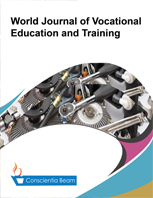The Effects of Using Assessment Rubrics on the Assessment and Grading of Pupils Conceptual Understanding of Algebra
DOI:
https://doi.org/10.18488/journal.119.2019.11.31.41Abstract
In an effort to improve performance in mathematics, this quasi-experimental non-equivalent control group pre-test post-test study was designed to establish the effects of using assessment rubrics on the assessment and grading of pupil’s conceptual understanding of algebra. This was done using Algebra Achievement Test (α=0.9) and Attitude Questionnaire Math (α=0.832) as data collection instruments. In the study, two groups of pupils (control, n=30 and experimental, n=34) doing 10th grade ordinary level mathematics were randomly selected at Muyombe Boarding Secondary School. Both groups received Problem Based classroom instructions on the topic. Then the experimental group was assessed using assessment rubrics. Data collected were analyzed using statistical tests through SPSS version 16. The independent t-test results showed that the experimental group exhibited a statistical significance with higher Mean Achievement Score (μ =62.76 SD=21.844) than the control group (μ =49.72 SD=14.027), t (62, 0.05) =3.590, p<0.05). The Manny Whitney U test also showed that the experimental group (μ=92.92, SD=3.11) had a statistical significance with a higher positive attitude toward mathematics than the control group (μ=84.35, SD=8.59), p<0.001. The results of the study showed that assessment rubrics could serve as a powerful tool for assessment and grading of pupils’ work that led to improved performance in mathematics. The study recommended that teacher educators should consider including assessment rubrics in their respective methodologies and assessment courses for pre-service teachers, and suggestions were provided for further research studies.

